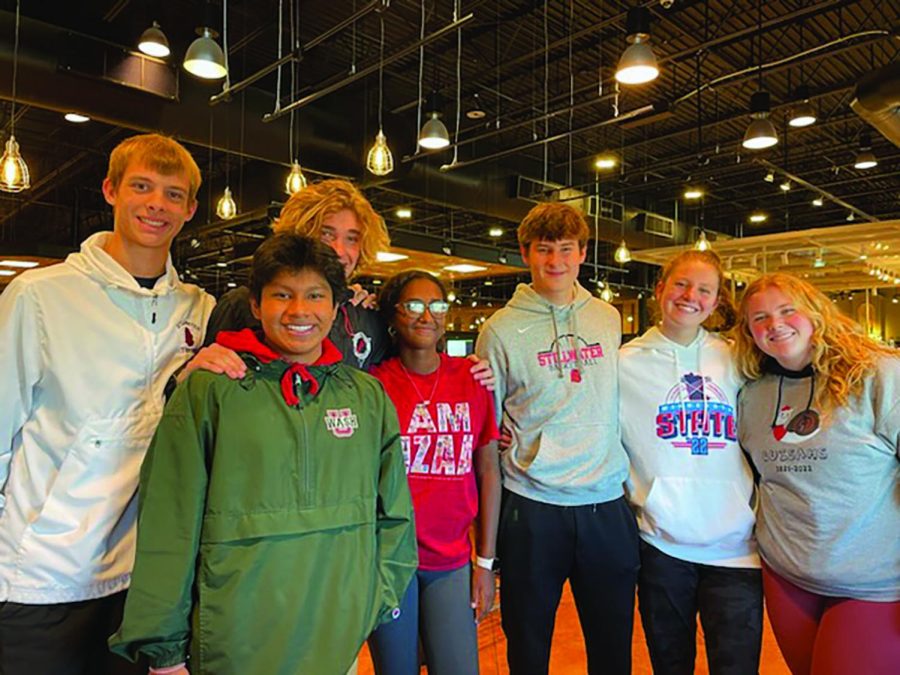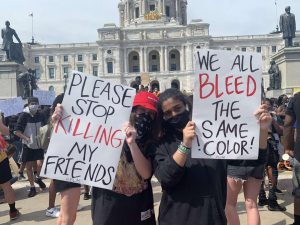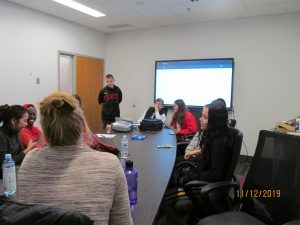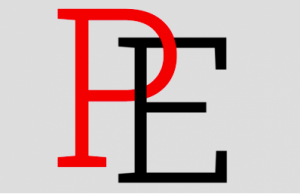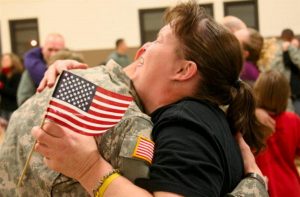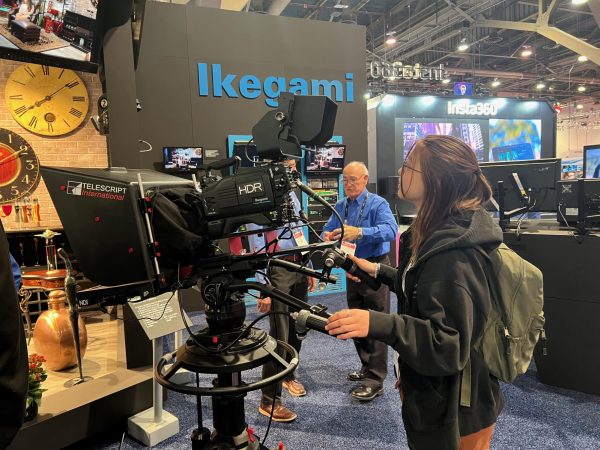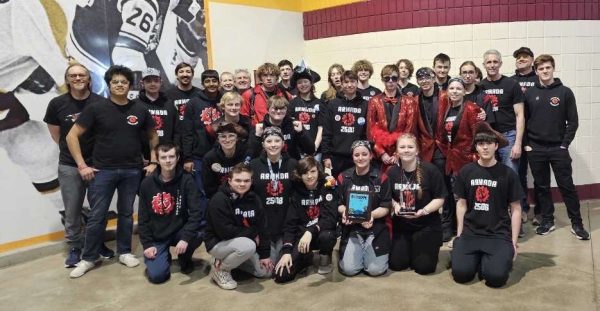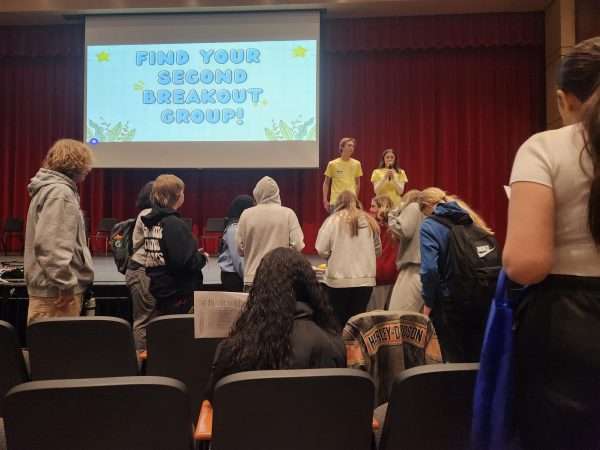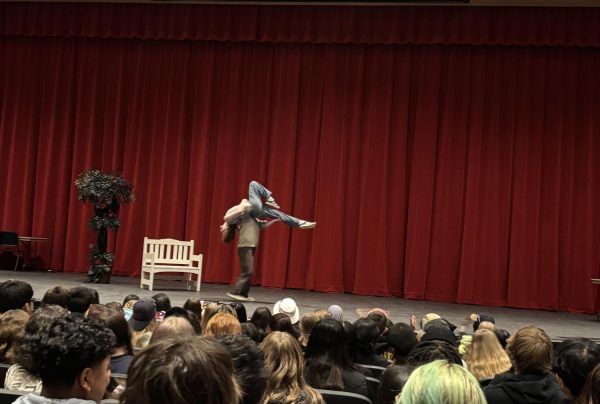BIZAA changes lives in Nigeria
Making a difference globally can be difficult while living in the midwest; BIZAA club allows this to change. BIZAA is a Twin Cities based organization which has an outlet at the high school. Advised by Spanish teacher Kirsten Carter, and made up of many co-presidents, BIZAA works to fund kids stuck in poverty in Nigeria and provides access to education by meeting once a month and fundraising though volunteering.
BIZAA stands for Basic Institution of Zonal African Advancement, which means supporting bright kids in their journey through education and rescuing them from child labor or human trafficking. Child labor in countries struck with poverty is unfortunately common and strikingly real. Creator of BIZAA, Okey, was born into a poor Nigerian family himself, and escaped poverty in his middle years.
He started the organization which was inspired from his past by “thinking back to when he was young and seeing the impoverished and the underprivileged… he thought, how can I give back?” Oyintare Porbeni, senior co-president said.
Okey wanted to help those who live with similar problems he faced in childhood and allow the opportunity for stable jobs and a constant, reliable income flow in their futures. Something unique about BIZAA is each child being supported is set in a spotlight and is allowed the opportunity to build relationships with the students here in Minnesota through letters once a year. This allows their supporters to understand their goals after education and who they are individually. Compared to large corporations, BIZAA strives for personal life-long connections which enhances its impact by so much.
“We know exactly who we are connecting with and so we’re able to feel a more personal connection to those kids which makes us more invested,” Carter said.
Raising enough money to support all six kids requires many hours of volunteering. The club organizes many fundraising opportunities.
“We are selling butter braids, and in the past we have volunteered at Kowalskis by bringing peoples bags to their car and we’re also thinking of selling bracelets this year,” junior Lauryn Sawotin explained.
Butter braids have become the simplest form of fundraising due to transactions being strictly online. Money used to purchase the braids go straight to a savings account that is then transferred to the BIZAA organization. Bagging groceries at Kowalski’s allows the club to interact with the community and integrate not only people but companies and families.
In order to ensure each student receives the education promised they try to keep two years ahead with their sponsorships in case there is a tough year or low club attendance, Carter said.
Of the numerous co-presidents, senior Oyintare Porbeni has a special reason for being a part of BIZAA.
“I am Nigerian myself. So I thought this is the best way I can give back to my people.” Porbeni said.
Inspired by Okey to help his native country and the deserving Nigerian students, Porbeni decided to integrate himself into the organization which focuses on real people, in real time. BIZAA works to fix entire lives, not just a few days. Instead of having big numbers and little change, BIZAA has smaller numbers and an enormous impact on children’s lives.
Kirsten Carter plays a crucial role in BIZAA. When Okey came to the high school and spoke during what used to be called Amnesty days, he inspired Carter. When he approached her explaining how he wanted to open a branch of BIZAA at the school, Carter was supportive of the idea and wanted to help. She believes the message and actions associated with BIZAA are very special and unique. The club can create lifelong friends and ideas that carry farther than the classroom.
Carter hopes the members “will continue to serve throughout the rest of their life and in some way promote human rights, and hopefully be able to make the world a better place,” after BIZAA and high school.
Volunteering and helping others is a huge factor which involved Carter with BIZAA.
“I feel that all people should be of some service to others and that takes a lot of different shapes and forms. So the more opportunities we can give our students to find their passion for service, the better,” Carter said.
BIZAA proves that even in a small Minnesota school, students can change entire lives across the world. Volunteering and helping people can also assist students in finding their purpose in life.
Making a difference, small or large, can do big things. BIZAA creates the unique opportunity to help a child’s entire life improve, something not every person can say they’ve been a part of.
“If you are in America, there are not many ways you can affect our international community but I feel like this is a great way to get kids together. We can do something small that has a huge impact,” Porbeni said.
Students can agree that BIZAA opens their eyes to what is happening around the world. Instead of isolating themselves into their own worlds, club members are able to see directly into the life of another, allowing for the life skills of empathy and gratitude to flourish.
Sawotin explained that it shows “what it is like somewhere else and it makes me feel good that I can help someone else get their education because I have had easy access to it my whole life and I have done something to help people,” and have had the opportunity to inspire others.
Taking education for granted can come naturally due to everyone given the right to school in America. Seeing situations in other countries can open the eyes of the future generations of leaders and may promise hope for change where it is needed.
Helping others can change the world one butter braid or club meeting at a time. Giving a person stuck in an unfortunate situation can substantially increase world connectedness and the overall opinion on empathy and how it should be applied.
“If people help people, things will get better,” Kirsten Carter said.
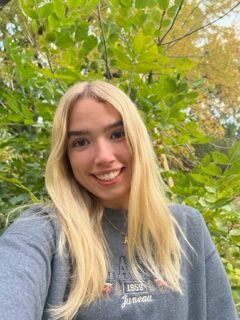
My name is Kennedy Williams. I am a junior and a Podcast Editor and Reporter. I play lacrosse, am in Student Council, and play piano. I love to hang out...




